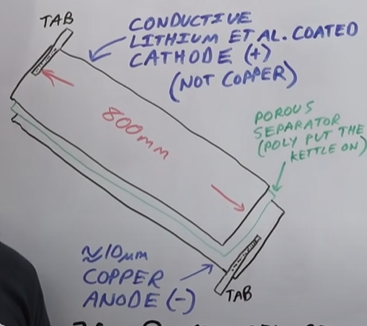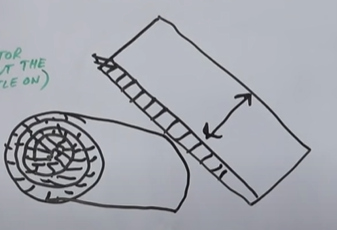I am not sure exactly how would the internal resistance change with the size of the batteries? What factors will dominate?
You should check out this EEVblog's video
He analyzes the internals of the battery (mainly the hardware part and not the chemicals) And shows how the size of the battery can be the reason of higher resistance.
After that, he shows how tesla tries to bypass that, by building a different hardware on the battery.
He shows that if you unroll a battery and check on its tabs, which are the positive and negative of the battery:
Are far apart from each other, making all this distance a 'huge' resistor.
Then, tesla does this:
Tabs everywhereall along the + side (and if I remember correctly, on the - side as well), so distance between + and - is minimized and thus, the resistance decreases.


